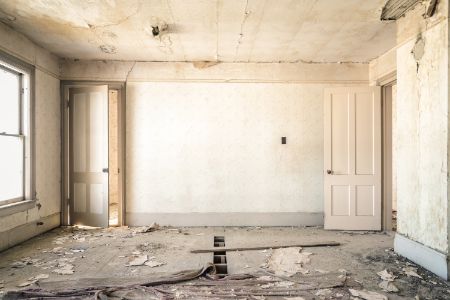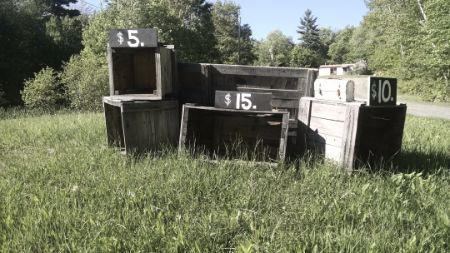What Are The Risks When Investing In Positive Cash Flow Property? (Ep3)
Just like any other investment, investing in positive cash flow property does carry with it many risks. But what are the risks when investing in positive cash flow property and how severe are they?
It is important to understand each and every risk before you purchase any investment. I have listed 20 different risks, however I am sure there are some that I have forgotten.
It is important to note that while it is impossible to avoid all risk you can prepare yourself against risk. Items such as insurance is a simple way to protect yourself from the potential risks of bad tenants or loss of value and income from devastating occurrences like a fire.
So here are 20 risks when investing in positive cash flow property. Although I have tried to focus on positive cash flow property these risks are also applicable to negatively geared investments also.
CASHFLOW RISKS
 Cashflow risks are the risks that could cause you to be out of pocket or have difficulty paying your bills in the day to day. Although at the end of the year you may be ahead, if you do not manage cashflow property and prepare for risks then you could find yourself in a very difficult situation.
Cashflow risks are the risks that could cause you to be out of pocket or have difficulty paying your bills in the day to day. Although at the end of the year you may be ahead, if you do not manage cashflow property and prepare for risks then you could find yourself in a very difficult situation.
Here are 9 things that could occur that will put your cash flow at risk.
1. Rental Vacancies
There is always the risk that your property may become vacant and stay vacant for some time.
Different areas have different vacancy rates. If there are lots of renters and not a lot of places for them to say then you are unlikely to be vacant for long.
But if there is an oversupply of accommodation and not enough people to rent them then you could have long periods of vacancy.
At the end of the day renters want to get the most house for their money. So if you overprice your house or let it deteriorate then this can all cause vacancy rates for your property to increase.
Stay in tune with the market and do your best to offer them a suitable property at an attractive price.
2. Management Problems
This is pretty rare but you could have a circumstance where you are having problems with your rental management team. In Australia 9 times out of 10 it will be a real estate agency managing the property for you.
Most real estate agents put a clause in their contract saying you must give anywhere from 3-6 months notice of terminating your contract with them.
This is mayhem. If you knew you were getting terminated in 3 months time would you work harder for your employer? NO WAY!
A way to avoid this is to get that clause removed from the contract and ensure you get some references for the agency before hiring them.
3. Tenants Not Paying Rent
Believe it or not but some tenants don’t just pay rent late, they don’t pay rent at all.
Late rent or no rent will throw a spanner in the works because it means that loss in income you will have to pay out of your own pocket.
Sure insurance can protect you against these things and you might be reimbursed later but what are you going to do when your mortgage payment is due, there is no rent coming in and the insurance will take another three months to finalise?
You can build in backups and emergency funds to protect yourself against this cashflow risk.
4. Unexpected Maintenance Bills
A few years ago my mum bought a unit and me and my wife moved in to rent it from her. Almost immediately the hot water system needed replacing. There goes $500-$1,000 right off the bat.
If a roof leaks or a tap breaks or the paint on the ceiling starts peeling you are going to have to pay to get those things fixed, and often it needs to be done quickly.
Sometimes its cheap ($100 for a plumber visit to fix a broken washer) and sometimes its more expensive (like $1,000 for a new hot water heater). Emergency funds help protect investors from these unexpected maintenance costs.
5. Rent Value Decline
It doesn’t happen all that often but it is possible for rent in an area to decline. This is usually caused by an oversupply of housing. Either by new developments being released or people moving out of the area.
Would you be able to afford it if you have to drop the rent $50/week just to get and keep a tenant?
6. Interest Rates Increasing
 Interest rates are some of the lowest we have seen in almost 20 years.
Interest rates are some of the lowest we have seen in almost 20 years.
Don’t bet your financial future on the fact that interest rates are going to stay as low as they are. Chances are they won’t.
Prepare for interest rates rising and build in cash flow if possible so you can afford to pay for increases in interest rates.
7. Lender Calling In Your Loan
I pray this never happens to you but I could occur. It usually occurs for businesses more than property, but you never know.
This occurs when your lender asks you to pay back the loan in full before its agreed upon due date.
Usually the only way to mitigate this risk is to have another lender you can borrow from.
8. Insurance Payment Delays
We talked about vacancies and tenants who don’t pay but there is also the case of damage to the property.
This might be malicious damage that you need to pay to get fixed, or it might be devastating damage link a fire.
In each of these cases you are either going to have to pay extra money (to repair damages) or will be losing cashflow (because you can’t collect rent). Most of the time there will be a delay in getting insurance payments while everything is finalised.
You need to consider this cash flow risk. The money has to come from somewhere while you wait for the insurance money to come through.
9. General Cash Flow Issues
 This is like that line you put on your budget labelled “miscellaneous”. Because when your sitting down with your wife at 7pm on a Tuesday night budgeting you can’t think of the fact that you will need $100 on the weekend to go out drinking with the buddies, or to invest in that new gadget, or (for me) to buy 5 domain names and a plugin (nerd alert!).
This is like that line you put on your budget labelled “miscellaneous”. Because when your sitting down with your wife at 7pm on a Tuesday night budgeting you can’t think of the fact that you will need $100 on the weekend to go out drinking with the buddies, or to invest in that new gadget, or (for me) to buy 5 domain names and a plugin (nerd alert!).
If all goes perfectly then you shouldn’t have cash flow issues with positive cash flow property. But we don’t live in a perfect world.
Maybe the bank transfer from the rental manager didn’t come through in time, or there was an extra fee that you forgot about or council rates were up on last year and you didn’t expect it.
DAMAGE RISKS
There are also the risks of damage being done to a property. It would be hard to set your shares on fire, and your bank deposit is not likely to get damaged in a flood. But with property all these things are a threat. Albeit a small one in most cases.
Here are the 2 major damage risks that could occur when putting your hard earned money into real estate investments.
10. Malicious Damage
 This is when your tenant or some outside intruder damages your property. It can either be intentional malicious damage or simply the fact that they take horrible care of the property while they live there.
This is when your tenant or some outside intruder damages your property. It can either be intentional malicious damage or simply the fact that they take horrible care of the property while they live there.
Regardless, damage needs to be fixed.
You collect a bond for damages but what if the costs to fix the property are in excess of the bond? This is where insurance comes in.
It is important to make sure you get the right insurance to cover you against these damages.
11. Fire or Other Devastation
There is also the potential of your house being completely wiped out. It is important to read the fine print with your insurance to make sure you are covered against all these damages.
CAPITAL RISKS
Capital risks are risks that could affect the value of your property.
Here are 5 capital risks that you need to consider when investing in positive geared property.
12. Loss In Value of Property
The value of your property can go down. This is actually more common that people are led to believe.
The property market, although has steadily increased as an average over the year, has peaks and troughs. Different areas go through this at different times.
I remember when our next door neighbour bought the place next door to us for around $750,000 and then sold it a year later for $650,000.
The real estate market is considered less volatile than the stock market, but it is still subject o market changes that can cause the value of your property to decrease.
13. Major Repair Costs
Major repair costs (eg. needing a new roof) are going to cost a lot of money are generally aren’t always something that can come out of spare cash.
Most people take an equity loan when they need to do repairs like this (if they don’t have the money). This lowers the equity you have in the property, usually without adding that value back to the property because you are fixing something that was broken.
14. Difficult To Sell
 There is always the risk that your property may be difficult to sell. This could be caused by the general sentiment of the market. Or it could be caused by your house not being suitable for people in the area.
There is always the risk that your property may be difficult to sell. This could be caused by the general sentiment of the market. Or it could be caused by your house not being suitable for people in the area.
Country towns generally take much longer for houses to sell, taking a few months or even a year to sell. Where as properties in capital cities can sell in just a couple of days.
What seems to be the best way to ensure a faster than average sale is to buy a property that appeals to the largest amount of people.
For example, less people want to live on busy roads. More families want a 3 bedroom house instead of a 2 bedroom house. Most families looking for a 4 bedroom house want at least 2 bathrooms and two living spaces.
By buying a property that appeals to the most people in the market you increase your chances of finding a buyer and selling your house more quickly.
15. Expensive To Sell
 Properties can be expensive to sell. Real estate commissions usually hover somewhere around 2% of the sale price. For a $500,000 house this is $25,000!
Properties can be expensive to sell. Real estate commissions usually hover somewhere around 2% of the sale price. For a $500,000 house this is $25,000!
Plus you have fees you have to pay and taxes as well. It isn’t as simple as getting cash out of the bank or selling your shares.
16. Little Diversification
A risk with investing in positive cash flow property, or any property for that matter, is that you often have to pull a lot of your eggs in one basket.
Because property is so expensive you generally have to pour almost all of your investment money into your first property.
This leaves you will very little diversification if something were to go wrong.
OPPORTUNITY RISKS
Opportunities risks are risks that you could be doing something better with your money. It may or may not occur but if you have your money invested in property then you aren’t investing that money somewhere else.
Therefore you are taking an opportunity risk.
Here are 4 opportunity risks that you need to consider when investing in real estate.
17. Property Not Helping You Achieve Financial Goals
A get a lot of emails from people asking me what are good areas to invest or whether or not a property they found is going to be a good investment.
My response is almost always the same – “A good investment for who?”
The biggest mistake new investors make is that they just want to invest in something, but they give no thought to their financial goals.
My parents did this when they bought a small 1 bedroom unit in the suburb they lived in. It was negatively geared, costing them money every month, and they never got massive capital gains. In the end they sold it and the growth in capital gains simply paid back the money they had put into the investment in the first place.
By looking at specifically what your financial goals are (“make more money” doesn’t count) you can then begin to analyse whether or not a particular property is actually helping you achieve your financial goals.
18. No Access To Cash In A Flash
 Bank deposit and shares are considered to be fairly liquid. This means if you need the cash you can get it pretty quickly.
Bank deposit and shares are considered to be fairly liquid. This means if you need the cash you can get it pretty quickly.
You can pull your money out of the bank and you can sell your shares and have the money often within a matter of minutes or hours.
With property it is much more difficult to access your cash.
You could sell your property, but it will probably take you over a month before you get the money (and that is if your property sells instantly).
You can also apply for an equity loan against the property, but this requires the property to have gone up in value and that your lenders believes you can service the loan effectively.
19. Difficult To Access Equity
If you own a $500,000 house and you have a $350,000 mortgage on the house then you have $150,000 in equity (untapped value).
However, in most cases you could only borrow up to $400,000 on this property as the bank will only allow you an 80% Loan to Value Ratio.
This means it is very difficult to access the remaining $100,000 of equity you have in the property.
Even accessing the $50,000 you can get can be difficult, as it is subject to a lender approving you for finance.
20. High Entry Costs
With the minimum deposit to purchase a house sitting around 5% (unless you get a guarantor) and a 20% deposit required to avoid extra fees getting into the property market can be expensive business.
On a $500,000 house we are talking anywhere from $25,000 to $100,000. I don’t know about you but I could count with 1 finger the amount of people I know with that much cash lying around.
ps. One of my friends runs a tech start up running bug bounties and just raised 1.7 million in venture capital so I am talking about him. I don’t think he could use it to buy a house though.
ONE EXTRA RISK
21. Litigation
 There is a final risk and that is the risk of being sued. This could come from almost anyone.
There is a final risk and that is the risk of being sued. This could come from almost anyone.
It could be a tenant suing you for the fact that a certain part of your property was not within regulation and they hurt themselves, or you could experience litigation outside of your property investments (ever heard of divorce?)
Protection yourself from litigation is extremely important, but it is also a very difficult subject and I am not a tax accountant. If you want to learn more about protecting your assets from litigation (and I suggest you do) then I suggest you buy Dymphna Boholt’s book “Protect Your Ass-ets” available through Fishpond.com.au (affiliate link)
Wow! Even though I covered 20 risks (actually 21) it is important to understand that you can protect yourself against many of these risks.
Every investment – whether it be property, shares, business or whatever – comes with inbuilt risks that you need to assess before moving forward. But this shouldn’t stop you investing.
As Dave Ramsey says “If you will live like no one else, then later you can live like no one else”. Living the life of your dreams involves taking risks. Just be wise about it.
DISCLAIMER No Legal, Financial & Taxation Advice
The Listener, Reader or Viewer acknowledges and agrees that:
- Any information provided by us is provided as general information and for general information purposes only;
- We have not taken the Listener, Reader or Viewers personal and financial circumstances into account when providing information;
- We must not and have not provided legal, financial or taxation advice to the Listener, Reader or Viewer;
- The information provided must be verified by the Listener, Reader or Viewer prior to the Listener, Reader or Viewer acting or relying on the information by an independent professional advisor including a legal, financial, taxation advisor and the Listener, Reader or Viewers accountant;
- The information may not be suitable or applicable to the Listener, Reader or Viewer's individual circumstances;
- We do not hold an Australian Financial Services Licence as defined by section 9 of the Corporations Act 2001 (Cth) and we are not authorised to provide financial services to the Listener, Reader or Viewer, and we have not provided financial services to the Listener, Reader or Viewer.
"This property investment strategy is so simple it actually works"
Want to achieve baseline financial freedom and security through investing in property? Want a low risk, straightforward way to do it? Join more than 20,000 investors who have transformed the way they invest in property."
